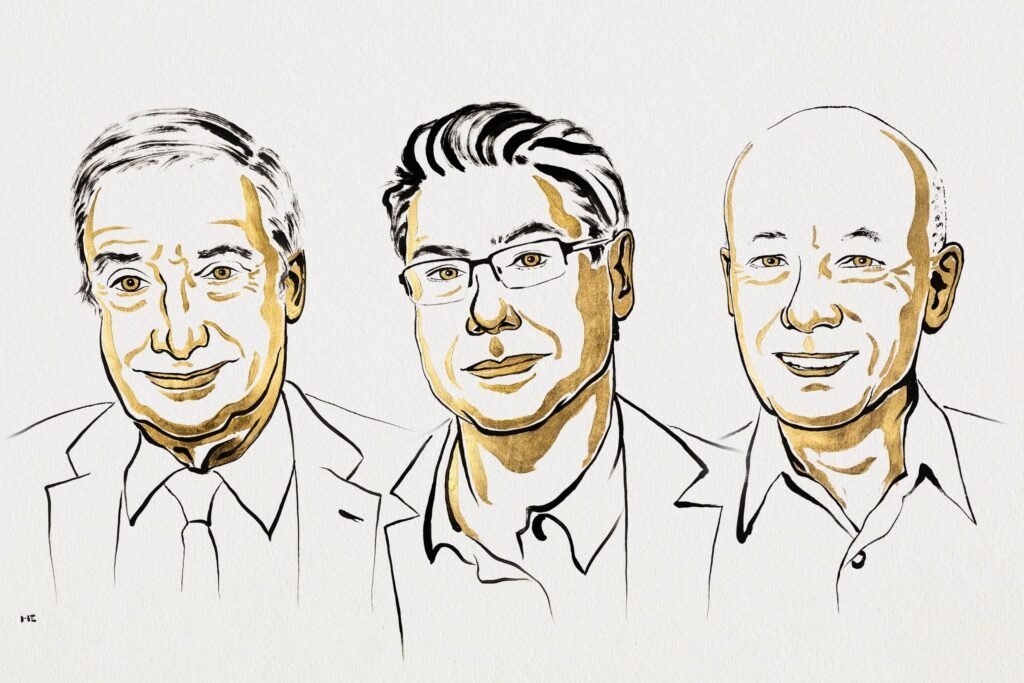STOCKHOLM: The 2025 Nobel Prize in Economic Sciences has been awarded to Joel Mokyr, Philippe Aghion, and Peter Howitt for their pioneering research explaining how innovation drives long-term economic growth and transforms societies.
Announcing the award on Monday, the Royal Swedish Academy of Sciences said the trio were honoured “for having explained innovation-driven economic growth.”
Half of the prize goes to Joel Mokyr for his groundbreaking historical analysis linking scientific understanding and openness to new ideas with sustained technological progress. The other half is shared by Philippe Aghion and Peter Howitt for their 1992 theory of “creative destruction” a dynamic model illustrating how constant innovation fuels growth while replacing outdated technologies and firms.
“Sustained growth cannot be taken for granted,” the Nobel Committee noted. “Economic stagnation, not growth, has been the norm for most of human history. Their work shows we must recognise and counteract threats to continued innovation.”

The laureates’ research illuminates how science, competition, and openness serve as engines of progress, lifting billions out of poverty and shaping modern prosperity.
Joel Mokyr, a professor at Northwestern University (USA), used historical insights to explain how the Enlightenment’s embrace of knowledge and experimentation spurred industrial and technological revolutions.
Philippe Aghion, affiliated with the Collège de France, INSEAD, and the London School of Economics, and Peter Howitt of Brown University (USA), mathematically modelled how creative destruction, a process where innovation constantly replaces the old with the new sustains economic dynamism.
Committee member John Hassler explained, “Aghion and Howitt’s model shows that progress is an endless process in which new and better products replace the old.”
Valued at 11 million Swedish crowns (USD 1.2 million), this year’s prize closes the Nobel season following awards in medicine, physics, chemistry, literature, and peace.
While few economists are household names, past laureates such as Ben Bernanke, Paul Krugman, and Milton Friedman have significantly influenced global economic thought.
Established in 1969, the Nobel Memorial Prize in Economic Sciences remains the only Nobel award not envisioned by Alfred Nobel himself but created by Sweden’s central bank to honour contributions that advance human welfare through economic understanding.
– Simon Johnson



















